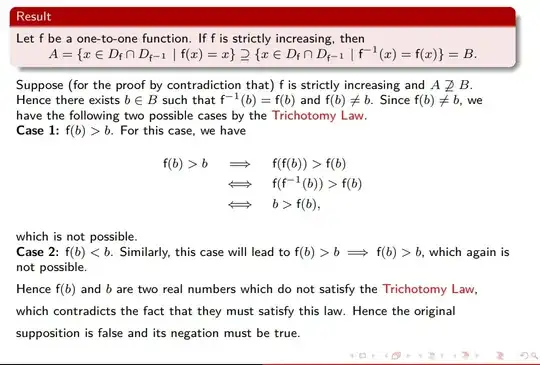Exactly under what conditions would the equality $f(x)=f^{-1}(x)$ hold? The proof attached below considers a special case when $f$ is strictly increasing. The theorem then says that the set of solutions to $f(x)=x$ will always be a superset of the set of solutions to $f(x)=f^{-1}(x)$. Any suggestions on how to improve this proof will be much appreciated.
However, most high school texts seem to assume in all cases to solve $f(x)=f^{-1}(x)$, simply solve $f(x)= x$. We know that this method, if it works at all, is at best a sufficient but not necessary condition. So, is there a precise set of conditions such that our desired equality will hold?

Edit: to avoid any miscommunications, my question is not related to the concept of involution functions. Involution functions are functions that are their own inverses. On the other hand, my question doesn't require $f^{-1}$ to be equal to $f$. I am merely interested in finding under what conditions will the equality $f=f^{-1}$ holds. And yes, just to clarify, I am looking at invertible functions. Thank you to whoever who pointed that out.